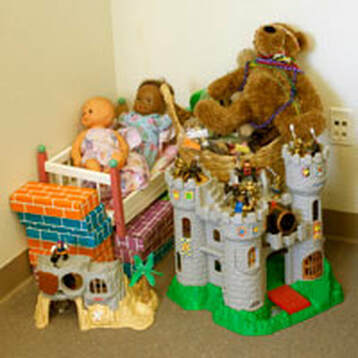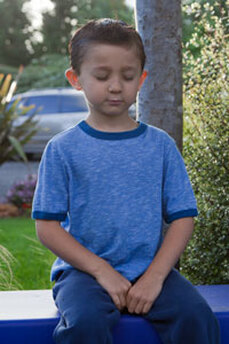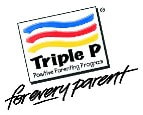Child Psychotherapy and Parenting
I offer psychotherapy for children from the ages of 3 to 12. In addition, I offer several forms of psychotherapeutic assistance focused on family and parenting issues. For more details about these services see the topics listed below.
I offer psychotherapy for children from the ages of 3 to 12. In addition, I offer several forms of psychotherapeutic assistance focused on family and parenting issues. For more details about these services see the topics listed below.

My Approach to Child Therapy
Is your child timid, sad, anxious, or fearful? Or do you feel stressed by your child’s angry outbursts, lack of impulse control, whining, or oppositional behavior? Has your child experienced trauma or loss? Child psychotherapy can help. It is possible to heal deep wounds, restore you child’s self-confidence and joy in life, and bring more harmony and peace to your parent-child relationship and your family.
With children my approach to therapy is child-centered and, for the most part, non-directive. This methodology is grounded in my experience that the deepest healing comes from within. When given the chance in an emotionally supportive and non-judgmental context, and with appropriate expressive media at hand, the inherent healing forces which lie within all of us naturally move into action. Sandplay Therapy, Play Therapy, and Expressive Arts Therapy provide excellent stimulus for these natural healing energies within children, who often find it difficult or impossible to verbally articulate their deeper experiences.
Each of these media has the ability to allow the unconscious to express itself in external imagery:
I also often introduce children to simple exercises designed to cultivate mindfulness. Mindfulness is a powerful complement for these image-evoking modalities. By reducing stress, increasing emotional and bodily awareness, and strengthening impulse control, mindfulness supports the deepening of the therapeutic process while providing tools to help children meet everyday challenges. For more about mindfulness and its use with children, see below.
My work with children always also involves collateral sessions with their parents roughly every 4-8 weeks. Collateral sessions are used to mutually share information and discuss the progress of therapy, as well as to explore issues of parenting and those that arise in school. In addition, with parents’ permission, I also consult from time to time with my clients’ teachers and other relevant school staff, as well as with their medical care providers.
Call now to schedule a free 20 minute phone consultation about your child.
Is your child timid, sad, anxious, or fearful? Or do you feel stressed by your child’s angry outbursts, lack of impulse control, whining, or oppositional behavior? Has your child experienced trauma or loss? Child psychotherapy can help. It is possible to heal deep wounds, restore you child’s self-confidence and joy in life, and bring more harmony and peace to your parent-child relationship and your family.
With children my approach to therapy is child-centered and, for the most part, non-directive. This methodology is grounded in my experience that the deepest healing comes from within. When given the chance in an emotionally supportive and non-judgmental context, and with appropriate expressive media at hand, the inherent healing forces which lie within all of us naturally move into action. Sandplay Therapy, Play Therapy, and Expressive Arts Therapy provide excellent stimulus for these natural healing energies within children, who often find it difficult or impossible to verbally articulate their deeper experiences.
Each of these media has the ability to allow the unconscious to express itself in external imagery:
- In Sandplay Therapy, through the creation of miniature worlds with small figures in a tray of sand.
- In Play Therapy, by acting out various scenes and experiences with toys, play houses, puppets, games, etc.
- In Expressive Arts Therapy, through drawing, painting, sculpting, making collages, puppet shows, etc.
I also often introduce children to simple exercises designed to cultivate mindfulness. Mindfulness is a powerful complement for these image-evoking modalities. By reducing stress, increasing emotional and bodily awareness, and strengthening impulse control, mindfulness supports the deepening of the therapeutic process while providing tools to help children meet everyday challenges. For more about mindfulness and its use with children, see below.
My work with children always also involves collateral sessions with their parents roughly every 4-8 weeks. Collateral sessions are used to mutually share information and discuss the progress of therapy, as well as to explore issues of parenting and those that arise in school. In addition, with parents’ permission, I also consult from time to time with my clients’ teachers and other relevant school staff, as well as with their medical care providers.
Call now to schedule a free 20 minute phone consultation about your child.
 Even kindergartners can learn mindfulness.
Even kindergartners can learn mindfulness.
Mindfulness for Children
Does your child have impulse control issues, difficulty with challenging emotions, or poor self-esteem? Psychotherapy which utilizes mindfulness can help. Integrating simple mindfulness exercises into therapy with a child teaches the child to pay better attention to their inner and outer experiences, particularly their emotions and bodily sensations, and serves to enhance many other therapeutic strategies. Imagine your own son or daughter with increased self-awareness, greater impulse control, a better ability to handle strong emotions, and improved self-acceptance. Consider the benefits for your child both at home and in school.
I also teach mindfulness to groups of children. From 2009 to 2012, I worked with an East Bay organization called Mindful Schools. Mindful Schools has developed a very effective curriculum for teaching mindfulness in elementary school classrooms. I have been trained by Mindful Schools in their curriculum, and have had the pleasure of teaching this curriculum in several Bay Area elementary schools. If you are a teacher who is interested in including mindfulness in your classroom or a parent intrigued by the idea of introducing mindfulness to your child's school curriculum, give me a call.
For more information about Mindful Schools and their nationwide and international classroom teacher training programs, visit www.mindfulschools.org.
Does your child have impulse control issues, difficulty with challenging emotions, or poor self-esteem? Psychotherapy which utilizes mindfulness can help. Integrating simple mindfulness exercises into therapy with a child teaches the child to pay better attention to their inner and outer experiences, particularly their emotions and bodily sensations, and serves to enhance many other therapeutic strategies. Imagine your own son or daughter with increased self-awareness, greater impulse control, a better ability to handle strong emotions, and improved self-acceptance. Consider the benefits for your child both at home and in school.
I also teach mindfulness to groups of children. From 2009 to 2012, I worked with an East Bay organization called Mindful Schools. Mindful Schools has developed a very effective curriculum for teaching mindfulness in elementary school classrooms. I have been trained by Mindful Schools in their curriculum, and have had the pleasure of teaching this curriculum in several Bay Area elementary schools. If you are a teacher who is interested in including mindfulness in your classroom or a parent intrigued by the idea of introducing mindfulness to your child's school curriculum, give me a call.
For more information about Mindful Schools and their nationwide and international classroom teacher training programs, visit www.mindfulschools.org.
 Therapy can be for children and their parents.
Therapy can be for children and their parents.
Parent Consultations
When providing psychotherapy for a child, I also include periodic meetings with the parent(s) to discuss how therapy is going and how things are going at home and school. These sessions are an opportunity to discuss and refine parenting strategies that compliment therapy.
Ongoing difficulties between parents and children can make family life stressful, even overwhelming. Suppose you could learn three or four simple parenting strategies and techniques that could transform your relationship with your child. Working to fine tune the ways you, as a parent, understand and interact with your child can restore harmony and enjoyment to the experience of being a family. If this image calls to you, family therapy can help make it a reality.
When working with parents, I utilize an evidence-based parenting modality, Positive Parenting Program (Triple P).
When providing psychotherapy for a child, I also include periodic meetings with the parent(s) to discuss how therapy is going and how things are going at home and school. These sessions are an opportunity to discuss and refine parenting strategies that compliment therapy.
Ongoing difficulties between parents and children can make family life stressful, even overwhelming. Suppose you could learn three or four simple parenting strategies and techniques that could transform your relationship with your child. Working to fine tune the ways you, as a parent, understand and interact with your child can restore harmony and enjoyment to the experience of being a family. If this image calls to you, family therapy can help make it a reality.
When working with parents, I utilize an evidence-based parenting modality, Positive Parenting Program (Triple P).

Positive Parenting Program (Triple P)
Triple P is a highly-researched behaviorally-oriented approach to parenting. Based on research findings, parents then taught effective approaches for maximizing their child’s positive growth and development strategies for addressing the specific behavioral issues of your child. Teaching techniques include demonstration and role playing, as well as at-home practice and short reading assignments between sessions. For more about Triple P, visit their website at https://www.triplep.net/glo-en/home/.
Triple P is a highly-researched behaviorally-oriented approach to parenting. Based on research findings, parents then taught effective approaches for maximizing their child’s positive growth and development strategies for addressing the specific behavioral issues of your child. Teaching techniques include demonstration and role playing, as well as at-home practice and short reading assignments between sessions. For more about Triple P, visit their website at https://www.triplep.net/glo-en/home/.